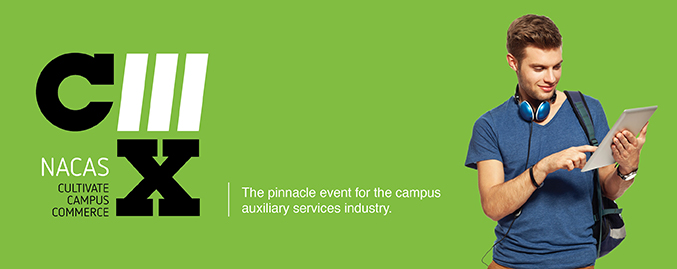| Conference Daily October 12, 2016 | Membership | Education | C3X | (434) 245-8425 |
 |
Food Insecurity: A Problem for Auxiliary Services? Slattery, associate vice president for auxiliary services at Towson University, acknowledged food insecurity is a growing issue that college and university officials must develop ways to address.
Robillard, executive director of auxiliary services at Boston University, said multiple factors are at play in the issue, including students who struggle with fiscal responsibility and colleges that admit students who can't truly afford to attend the school without financial hardship. He acknowledges it's a problem, but said trying to address it is complex. "I think food insecurity is a real problem, but I think it's the issue du jour," Robillard said. "There is always an issue du jour. Can we respond and handle every issue du jour out there? No we can't. We can't solve every individual problem, but we have to teach them to solve their own problems. Part of being an adult is learning how to care for themselves."
"It's not limited to institutions with mostly poor and disadvantaged students, but those can be affected more," Slattery said.
Slattery said the issue may currently be a temporary problem that affects campuses mostly during holiday and vacation breaks, but it has the potential to become chronic. He said studies show food insecurity can lead to a direct impact on a student's education. The presenters offered solutions currently being used on campuses including:
- Student meal vouchers - Partnering with food banks, funded through private donations, school fees, or excess food supplies. The down side is that food banks often limit the amount of food students can take, the days of the week are limited, and there's usually an intake process. - Joining with a business partner to ensure a certain amount of food is contractually provided for the food bank. |
 |
| NACAS (National Association of College Auxiliary Services), headquartered in Charlottesville, Va., is a nonprofit higher education association serving auxiliary services and student support services professionals at colleges and universities in the United States, Canada, the United Kingdom, Australia, Ireland and Asia. NACAS provides extensive opportunities for members to share ideas, develop business solutions, enhance programs and revenues, and develop meaningful professional relationships. For more information visit: www.nacas.org |